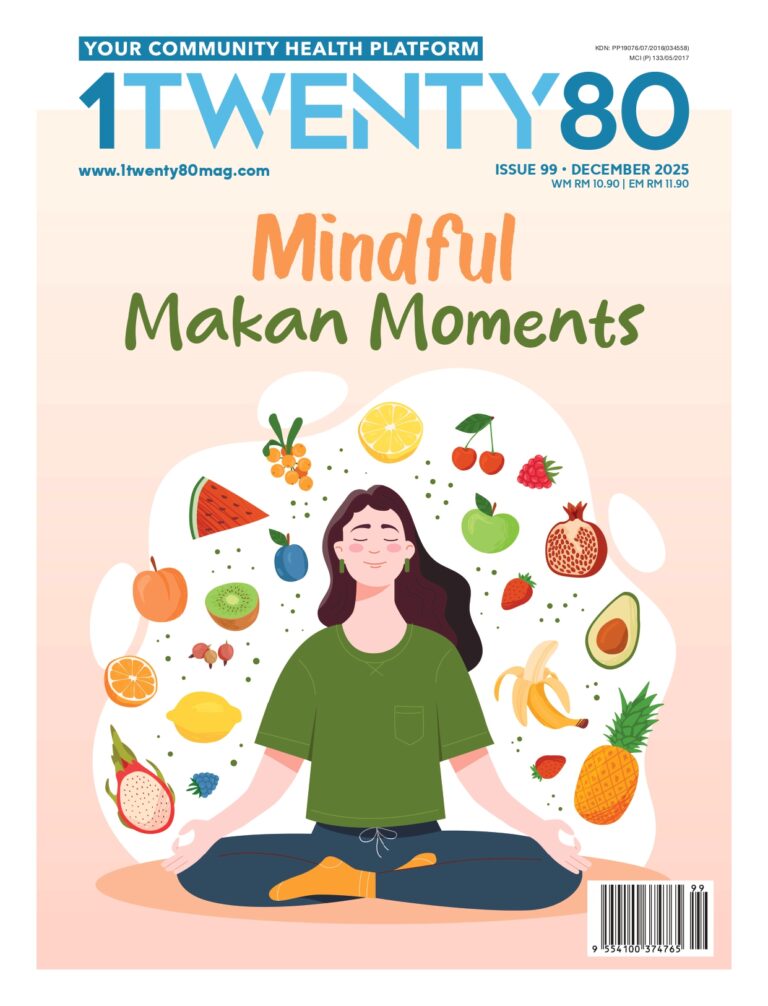A mood disorder is when a person’s emotional state is up and down or inconsistent with their situation and disrupts a person’s ability to function. For instance, you could feel extremely sad, empty or irritated (depressed) and then you could have periods of extreme happiness (mania). Anxiety disorders along with depression can also affect your mood. Some examples of mood disorders include bipolar disorder and major depressive disorder.
Dealing with a mood disorder is already difficult as an adult but how do you deal with your child’s mood disorder? It already takes a village to raise a child so needing to cope with their mood disorder could feel overwhelming to some parents. We want to shed light on how to support your child with a mood disorder from how to cope with their diagnosis to how to handle their schooling and also avoiding parental burnout. We spoke to Pantai Hospital Kuala Lumpur’s Consultant Child Psychologist, Katyana Azaman.

1Twenty80: WHAT IS THE FIRST THING A PARENT SHOULD DO WHEN THEIR CHILD RECEIVES A DIAGNOSIS OF MENTAL ILLNESS?
Katyana Azman: The very first thing you need to do is to adopt an open mind. Mood disorders in Malaysia have negative connotations but one in three individuals are affected which is actually quite a lot of people! Having a mood disorder is not a bad thing.
I would suggest for parents not to put their child into a ‘box’. I mean this by not limiting what your child can do based on their diagnosis. A mood disorder doesn’t mean that their child will perform badly in school. Allow your child to excel and learn from their peers. Most importantly, don’t allow the internet to tell you what is normal and what’s abnormal.
1Twenty80: WHAT ARE CERTAIN THINGS THAT A PARENT NEED TO CHANGE TO HELP THEIR CHILD?
Katyana: Their mindset! Be open to the fact that their child has a mood disorder. Unlike adult patients, children rely on their parents to seek medical help. Parents who are in denial limit their children from having help from a psychiatrist or psychologist.
Be non-judgemental towards your child because he or she isn’t intentionally being difficult. Change the way you communicate with your child. Some parents may speak aggressively or harshly due to believing that their child is purposely being difficult. They can’t control what they’re doing much like you wouldn’t blame a diabetic child because like other diseases, a mood disorder is a biological and medical occurrence.
Quote: MOOD DISORDERS IN MALAYSIA HAVE NEGATIVE CONNOTATIONS BUT ONE
IN THREE INDIVIDUALS ARE AFFECTED WHICH IS ACTUALLY QUITE A LOT OF PEOPLE!

1Twenty80: SHOULD PARENTS SIT IN ON EVERY THERAPY SESSION?
Katyana: This depends on the child’s age. For children who are quite young (primary school), parents are welcome at therapy sessions so they can see how to execute certain techniques with the child at home or at school.
For adolescents, they usually see me alone because some of them unfortunately can’t confide in their family. Parents are updated monthly on how the child is doing but we keep whatever the patient says confidential. However, we will do what we must if the patient wants to harm themselves or others.
1Twenty80: HOW SHOULD A PARENT WHOSE CHILD HAS A MOOD DISORDER, HANDLE THEIR SCHOOLING?
Katyana: Children spend most of their time in school. Teachers tend to have more insight so it’s a two-way relationship, much like a therapist’s relationship with the parents. Have a good relationship with your child’s teachers and speak with them often. Be aware of what’s happening at school.
Problems need to be seen at home and at school in order to properly diagnose a child with a disorder. If the child behaves differently at school versus at home, then the therapist can discern if it’s an environmental trigger.
The only way for children to be able to change their circumstances is to learn how
to deal with them. Parents of a child with a mood disorder could be more concerned that the child is undergoing challenges and project their anxieties onto their child. A child with a mood disorder learns just like other children–through their peers. Being overprotective can exclude your child from learning these important lessons. Yes, you need to be mindful of your child’s mood disorder but let them learn!

1Twenty80: HOW CAN PARENTS PREVENT THEIR OTHER CHILDREN RESENTING THEIR SIBLING WITH A MOOD DISORDER DUE TO POSSIBLE UNFAIR AMOUNTS OF PAID ATTENTION?
Katyana: Younger children are less understanding than older children because they’re more focused on attention. I would suggest for you to fix a specific day a week for your other children to spend time with them. Allow them to pick what to do like perhaps getting ice cream, going to see a movie or fishing, anything as long as they feel like they have a say and also, your attention. It can be challenging but do make it a point to spend time with them.
For older children, let them know that you’ll be there for them and always available to talk. When your child with a mood disorder is sleeping or not around (at therapy or others), take time to talk to your older children and check up on them and celebrate their achievements! Have your older children understand what’s happening with their siblings and explain the mood disorder to them. Get them involved in your affected child’s intervention plan as well and let them know that it’s normal.

1Twenty80: HOW CAN YOU CREATE A SUPPORTIVE ENVIRONMENT FOR YOUR CHILD?
Katyana: As mentioned before, be open to communicating with your child, don’t base on facts from the internet on what to expect with your child and be willing to learn from the therapist that works with your child! Most importantly, be their mum and dad.
1Twenty80: HOW DO YOU AVOID PARENTING BURN OUT?
Katyana: Remember that you are human and cut yourself some slack. Work as a husband and wife team and have each other’s backs – divide and conquer tasks. If you’re a single parent, take advantage of any external support such as extended family or close friends. Do schedule time for yourself such as when the children are at school and do things that lift your spirits. It doesn’t have to be a complete spa experience but something that puts you first.
1Twenty80: WHAT IS YOUR ADVICE TO PARENTS WHO ARE CURRENTLY SUPPORTING THEIR CHILDREN WITH MENTAL ILLNESS?
Katyana: If you’ve taken steps to be aware that something’s affecting your child, this is already the hardest step. It can only get better from here and you belong to a vast community with readily accessible information should you want it. You’re not alone and mood disorders are manageable!











